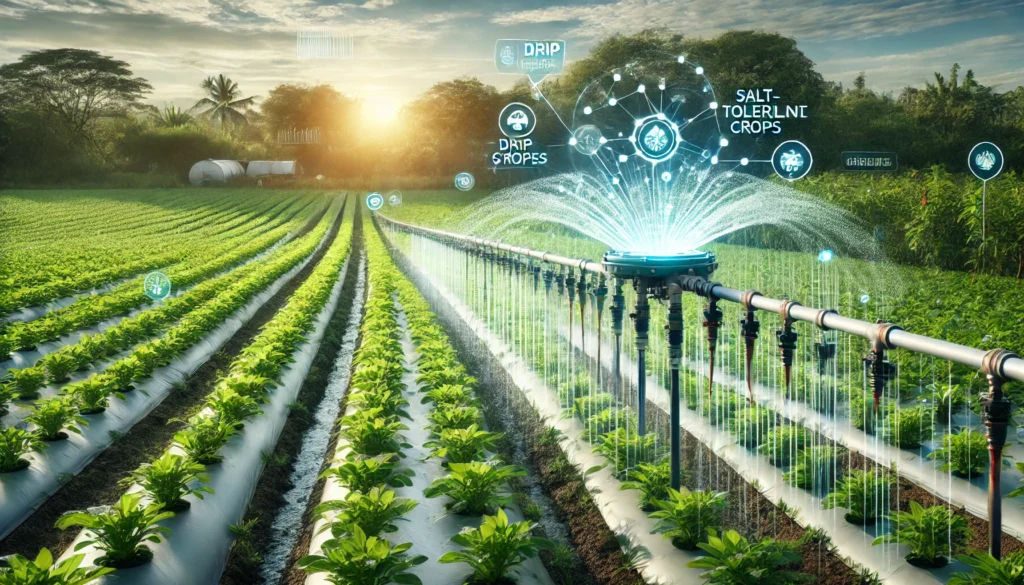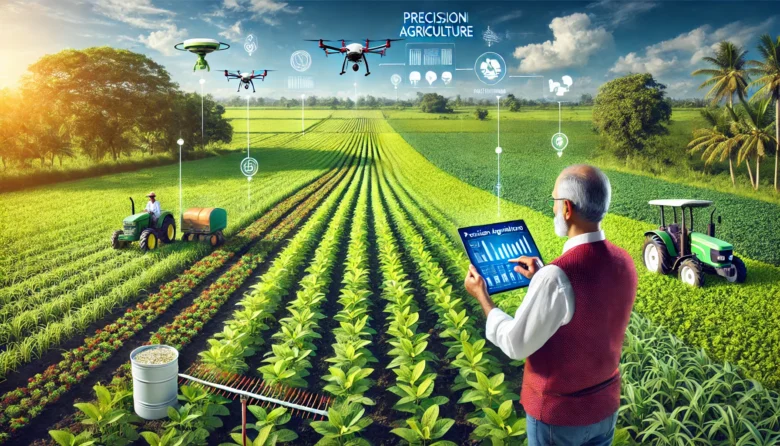India’s agriculture is the backbone of its economy, but climate change poses significant challenges. As weather patterns become more unpredictable, it’s crucial to explore climate-resilient crops to ensure food security. This blog delves into how Indian farmers can adapt to extreme weather by embracing climate-resilient crops.
Introduction
India’s agricultural sector, which provides livelihoods for more than half of the population, faces a daunting challenge. The effects of climate change have resulted in unpredictable weather patterns, such as droughts, floods, and heat waves. To tackle these challenges, the focus is shifting towards climate-resilient crops—plants bred to withstand extreme weather conditions. This adaptation is essential for maintaining food security and the livelihoods of millions of farmers. In this blog, we will delve into the significance of climate-resilient crops, the scientific principles behind them, and their potential effects on Indian agriculture.
What Are Climate-Resilient Crops?
Climate-resilient crops are designed to survive and thrive in extreme weather conditions. These crops are bred to withstand drought, salinity, high temperatures, and even flooding. The primary goal is to maintain yield and quality despite adverse environmental conditions.
The Science Behind Climate-Resilient Crops
Developing climate-resilient crops involves genetic modification and selective breeding. Scientists identify traits in plants that allow them to survive in extreme conditions and integrate these traits into staple crops like rice, wheat, and maize. For instance, drought-resistant rice varieties have been developed by incorporating genes from drought-tolerant plants.
Examples of Climate-Resilient Crops in India
Drought-Resistant Rice (DRR): This variety can grow with minimal water, making it ideal for regions with unpredictable rainfall.
Heat-Tolerant Wheat: Developed to withstand high temperatures, ensuring wheat production remains stable even during heatwaves.
Flood-Resistant Rice (FRR): This rice variety can survive underwater for extended periods, perfect for flood-prone areas.
Salt-Tolerant Crops: These crops can grow in saline soils, which are becoming more common due to rising sea levels and soil degradation.

The Importance of Climate-Resilient Crops
Ensuring Food Security
India is the world’s second-largest producer of rice and wheat. Climate-resilient crops ensure that these staple foods remain available despite adverse weather conditions, thereby safeguarding food security.
Supporting Farmer Livelihoods
Unpredictable weather can devastate crops, leading to financial instability for farmers. Climate-resilient crops reduce the risk of crop failure, providing a more stable income for farmers.
Reducing Dependency on Water
With water becoming an increasingly scarce resource, drought-resistant crops are essential. These crops require less water, helping conserve this precious resource.
Adapting Agriculture to Extreme Weather
Traditional Practices
Indian farmers have long used traditional practices to cope with extreme weather. Techniques like crop rotation, intercropping, and organic farming have been effective in managing risks.
Modern Techniques
Precision Agriculture: Using technology like GPS and sensors to monitor and manage crops more efficiently.
Smart Irrigation: Implementing drip irrigation and rainwater harvesting to optimize water use.
Agroforestry: Integrating trees into farming systems to provide shade, improve soil quality, and increase biodiversity.
Government Initiatives
The Indian government has introduced various initiatives to encourage climate-resilient agriculture:
Pradhan Mantri Krishi Sinchai Yojana (PMKSY): Aims to improve irrigation efficiency.
National Mission for Sustainable Agriculture (NMSA): Emphasizes climate-resilient farming techniques.
Soil Health Card Scheme: Provides farmers with information on soil quality and recommendations for sustainable farming.
The Role of Research and Development
Organizations such as the Indian Council of Agricultural Research (ICAR) are leading the development of climate-resilient crops. Partnerships with global entities, like the International Rice Research Institute (IRRI), have played a crucial role in this progress.
Success Stories
Submergence-Tolerant Rice (Swarna Sub1): Developed in collaboration with IRRI, this variety has been a game-changer for farmers in flood-prone areas of Odisha and Bihar.
Drought-Tolerant Maize: Promoted by ICAR, this maize variety has helped farmers in Maharashtra and Karnataka cope with water scarcity.
Challenges and Future Prospects
Challenges
Acceptance and Adoption: Farmers may be hesitant to adopt new varieties due to lack of awareness or distrust in new technologies.
Infrastructure: Adequate storage and transportation facilities are necessary to ensure that climate-resilient crops reach all regions.
Policy Support: Continued government support and favorable policies are crucial for the widespread adoption of climate-resilient crops.
Future Prospects
Increased Research Funding: More investment in research can accelerate the development of new climate-resilient varieties.
Education and Training: Empowering farmers with knowledge and skills to adopt climate-resilient practices.
Public-Private Partnerships: Collaboration between government, private sector, and NGOs to promote sustainable agriculture.
Conclusion
Adapting agriculture to extreme weather through climate-resilient crops is not just an option but a necessity for India’s future. By embracing these crops, we can ensure food security, support farmer livelihoods, and conserve resources. The journey towards climate-resilient agriculture requires collective effort from farmers, researchers, policymakers, and the public. By working together, we can establish a sustainable and resilient agricultural sector for India.
Author’s Note
As a dedicated advocate for sustainable agriculture, I am convinced of the power of innovation to tackle challenges. By supporting climate-resilient crops, we are not only safeguarding our food supply but also empowering our farmers to thrive in a changing world. Let’s join hands in promoting and adopting these solutions for a brighter and more sustainable future.
G.C., Ecosociosphere contributor.




